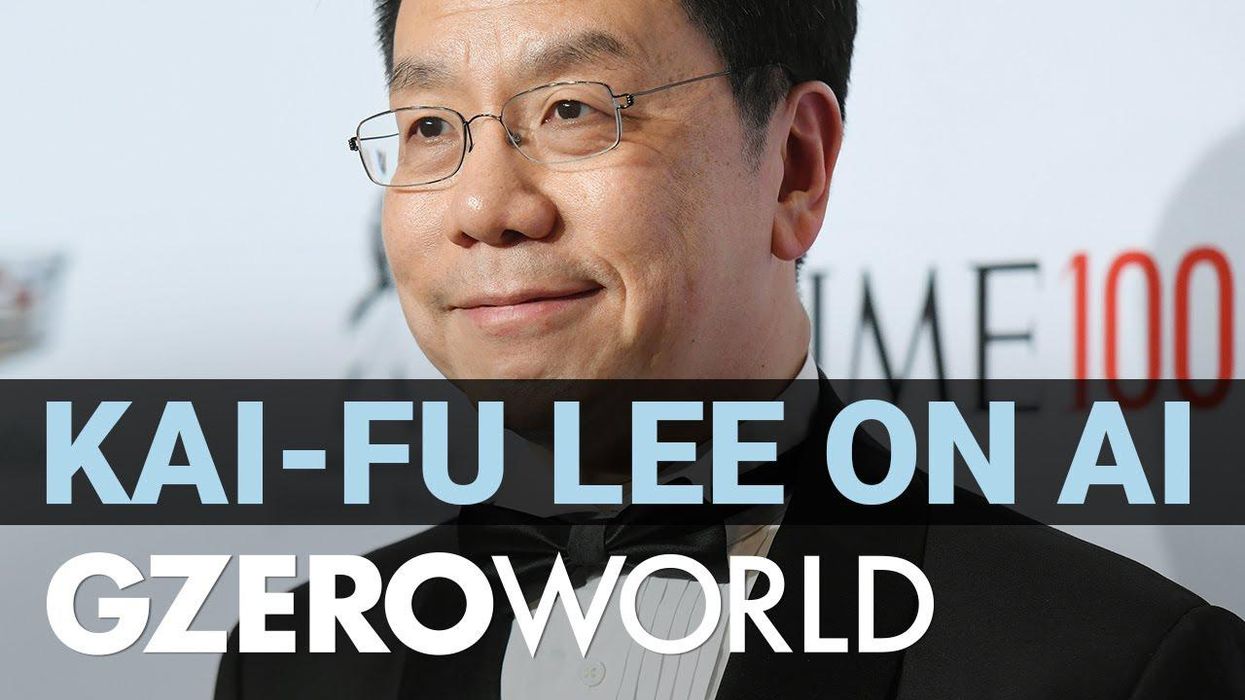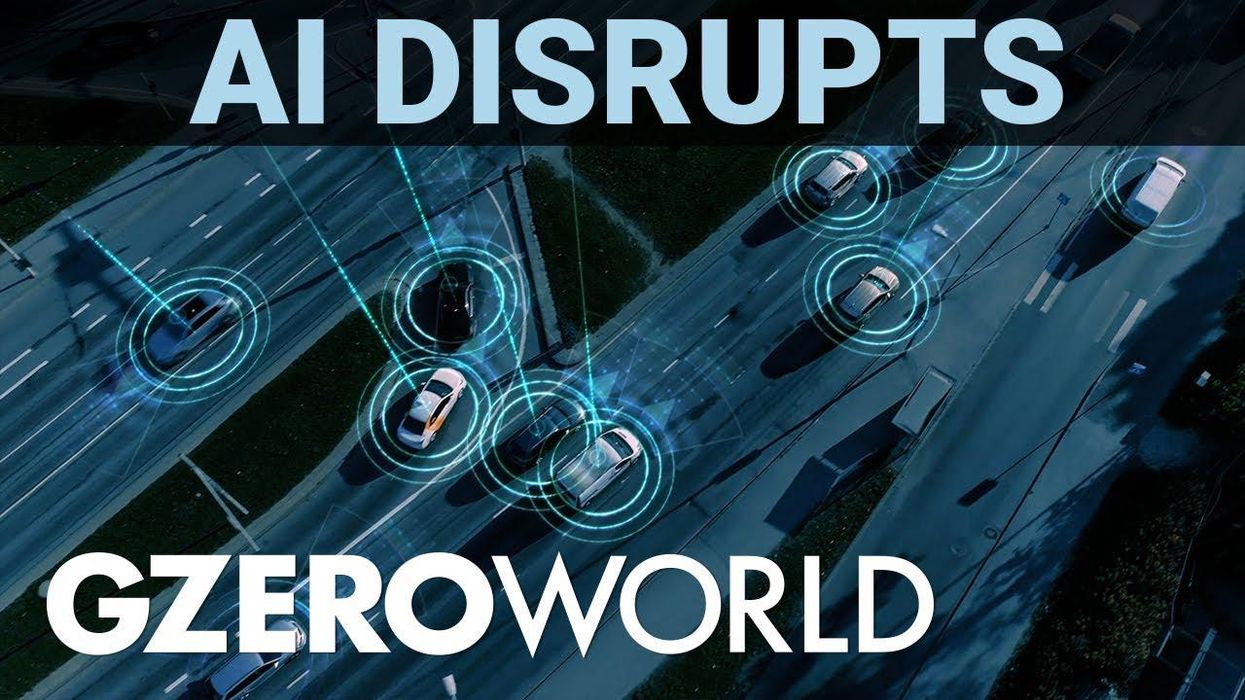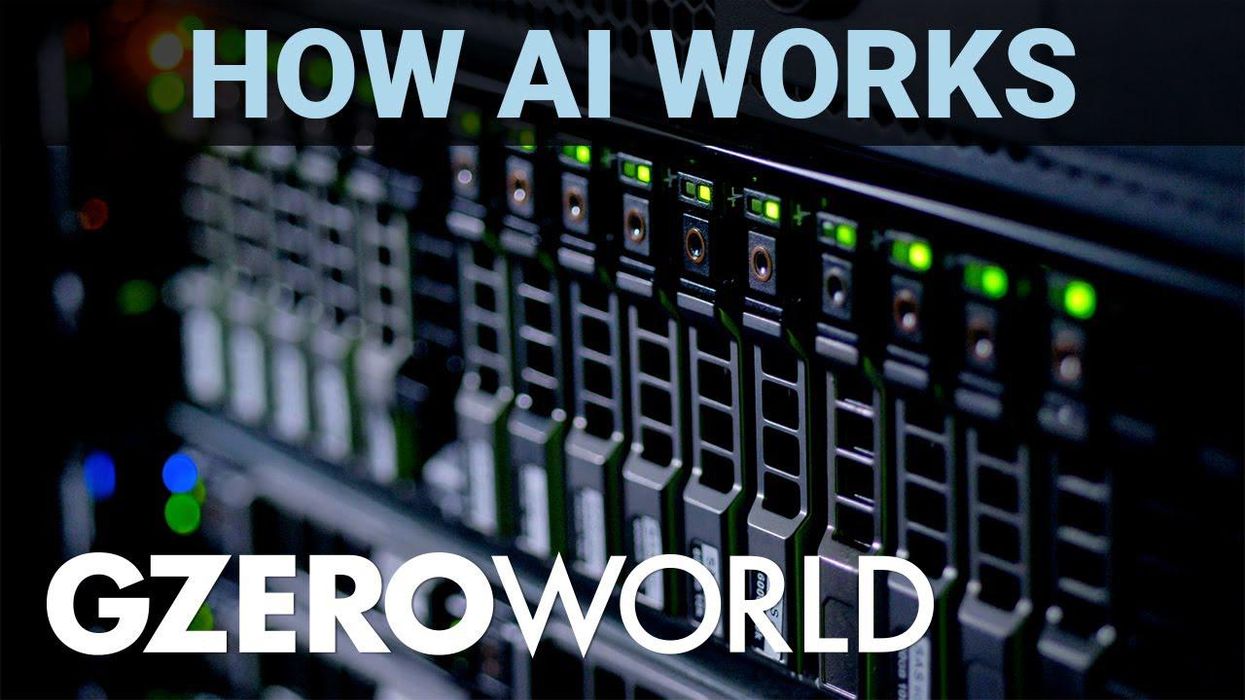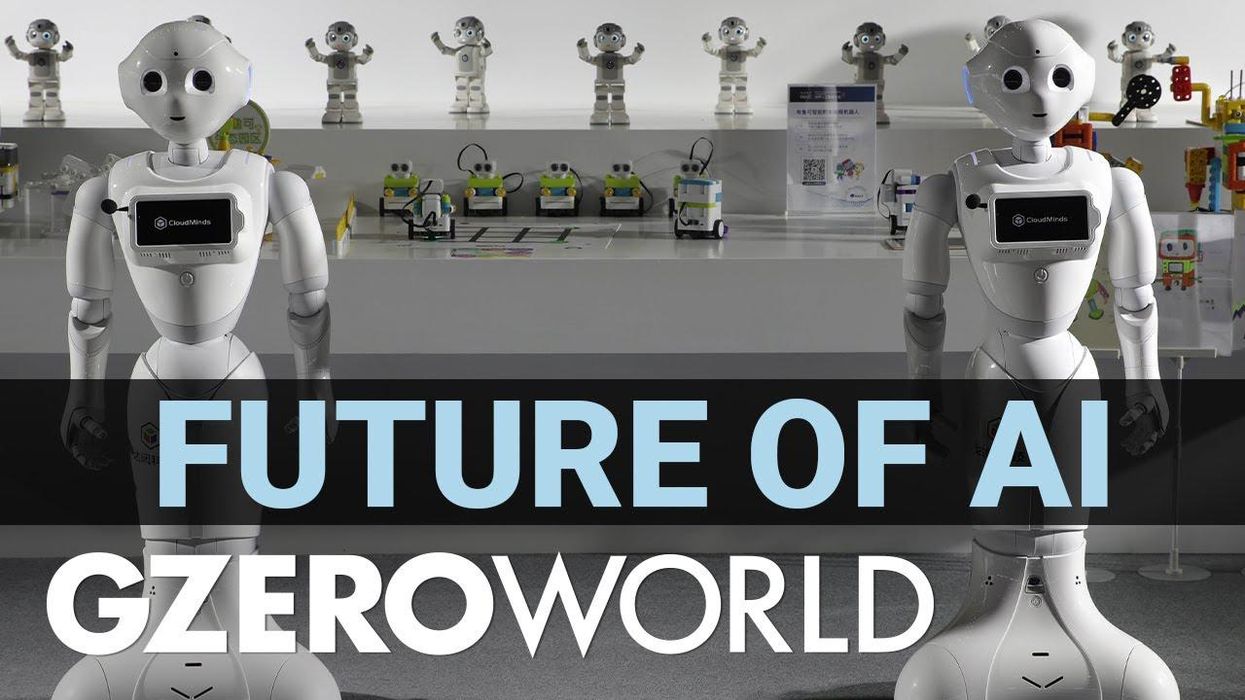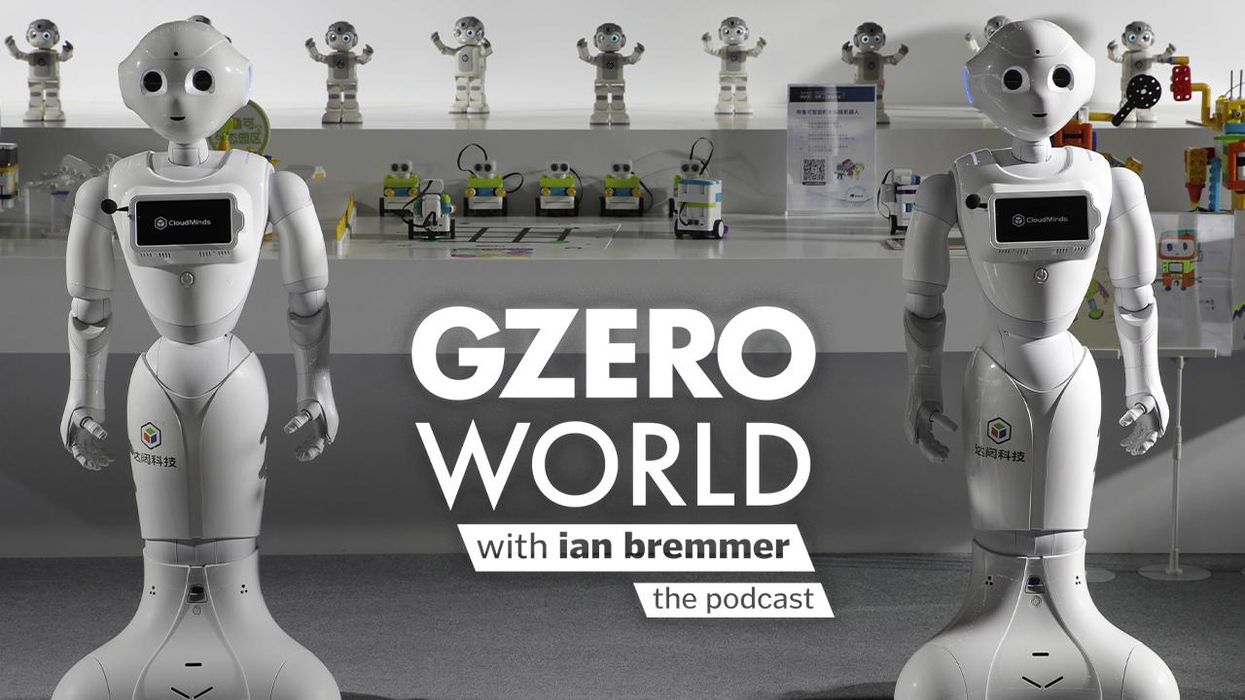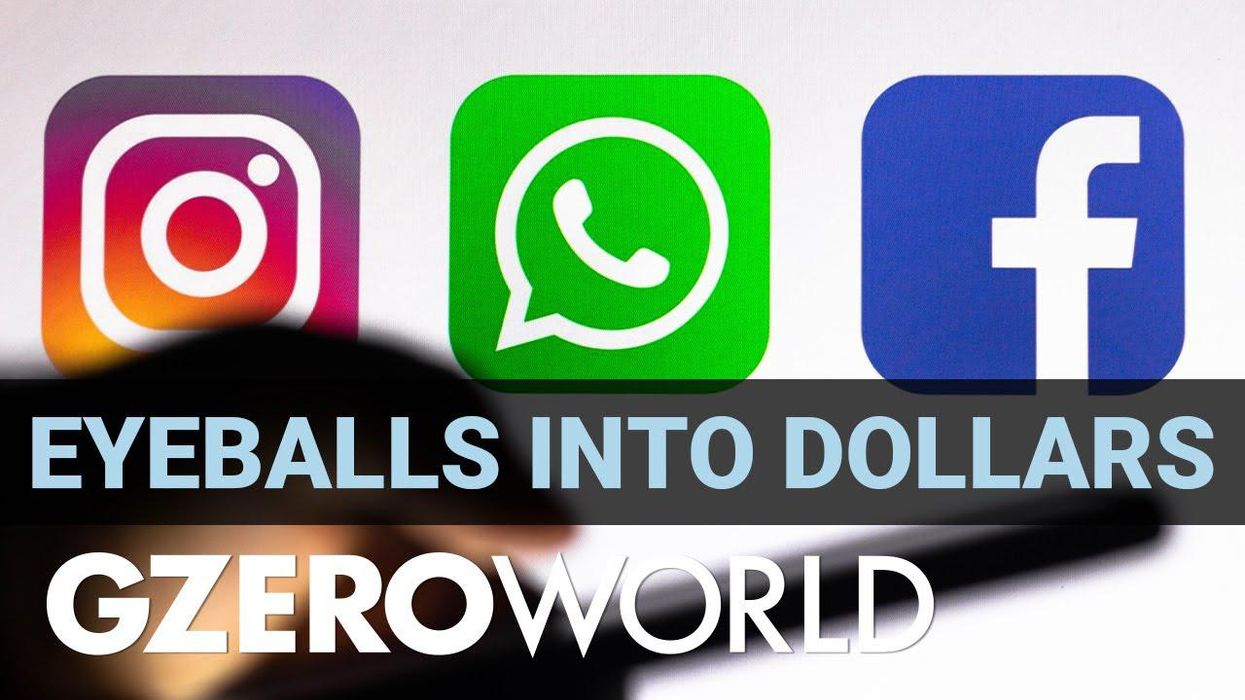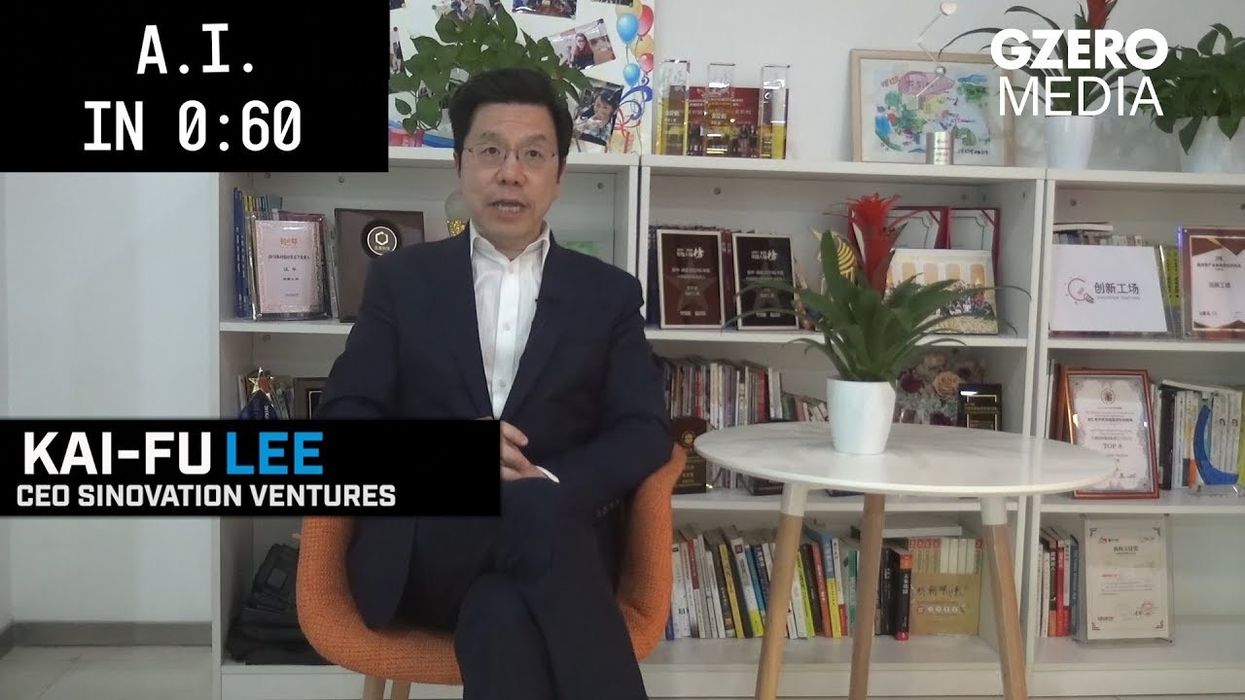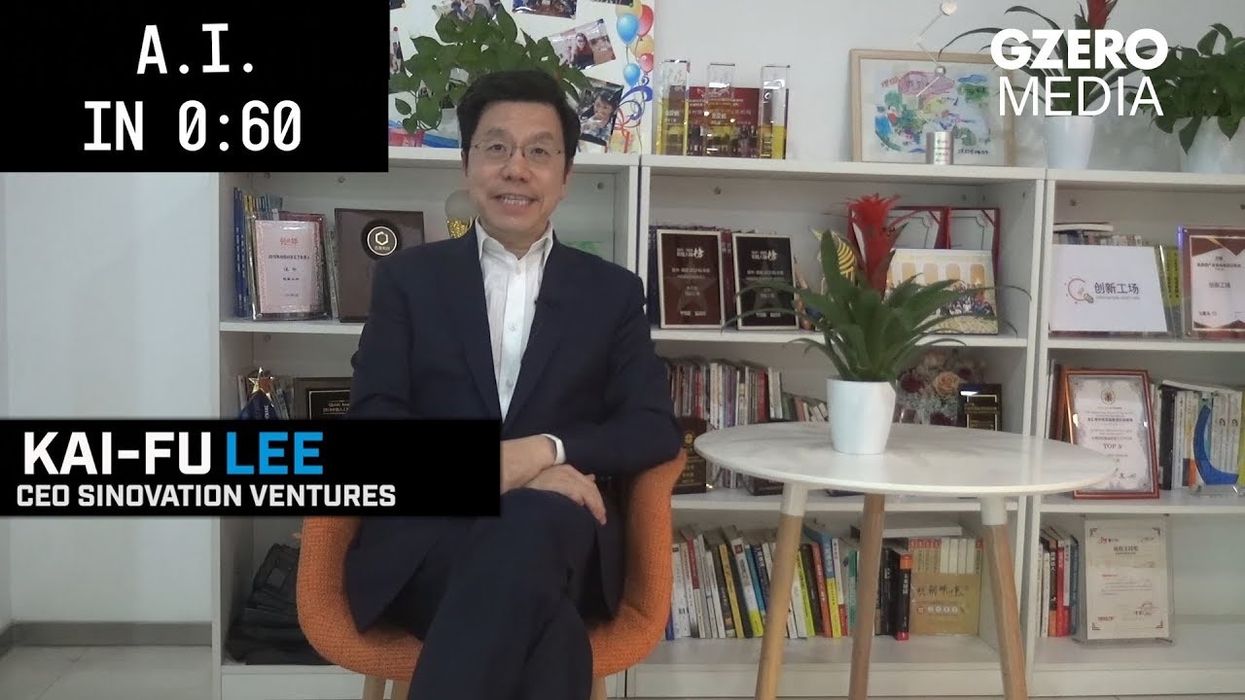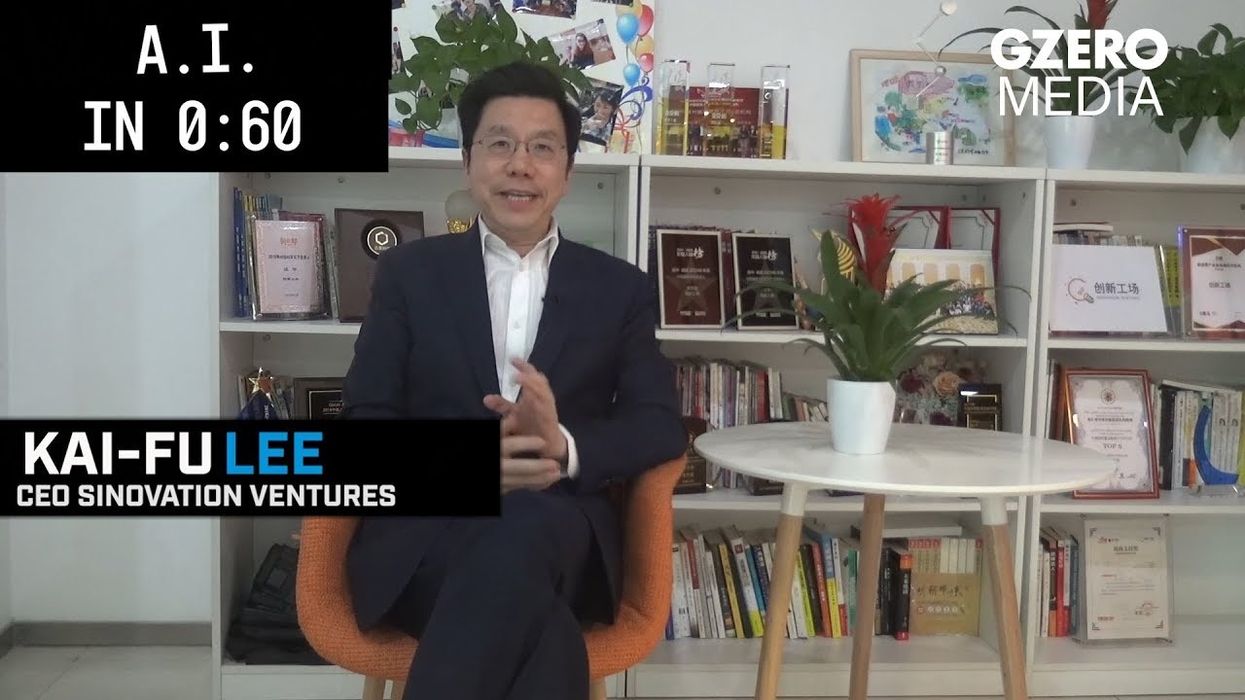GZERO World Clips
Kai-fu Lee: What's next for artificial intelligence?
After this week's Facebook debacle, how can we align interest to regulate AI-driven algorithms? Will AI steal all our jobs? And what should we do to learn from AI to improve our lives before it gets smarter than us?
Oct 17, 2021
